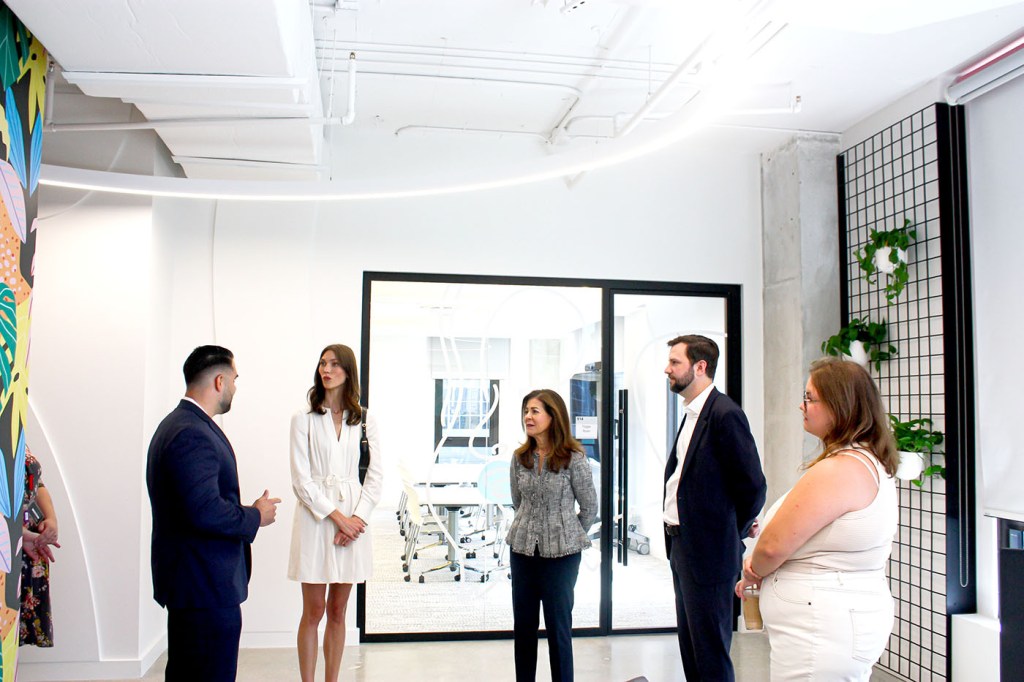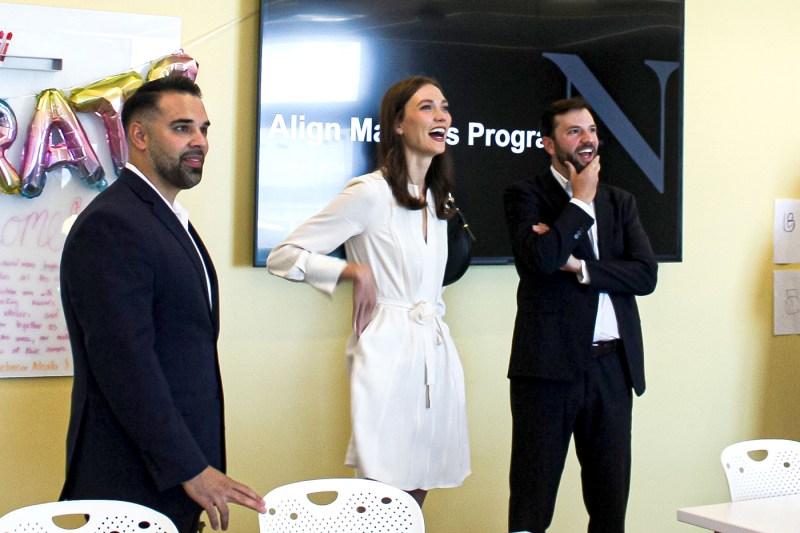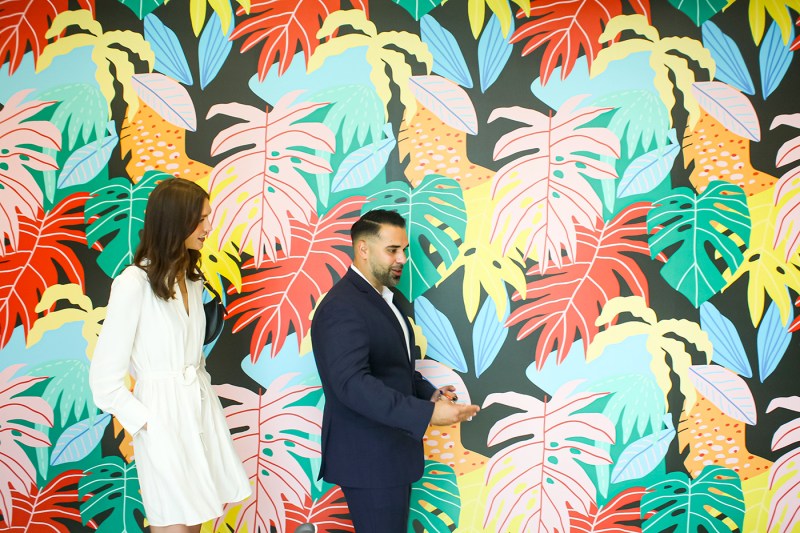Northeastern’s Miami campus partners with Karlie Kloss’ summer camp for aspiring computer coders
Maria Alonso, CEO and regional dean of the Miami campus, says hosting Kode with Klossy is a powerful reminder of the impact the university has in the community.

What do Northeastern University and a world-famous fashion model have in common?
A lot, it turns out.
Karlie Kloss has appeared on 40 Vogue covers, hosted a reality television series and appeared in music videos with Taylor Swift.
But she also has a passion for technology — and getting girls and gender expansive teens interested in STEM fields.
In 2015, she founded Kode with Klossy, a free summer camp for aspiring computer coders.
For two weeks this month, the camp was run out of Northeastern’s new campus in Miami.
Like Kloss, the university is making computer science more accessible through its Align program, which gives students without a background in computer science a direct path to an advanced degree.
Women make up about 55% of Align students.


Northeastern is also home to the Center for Inclusive Computing, which collaborates with other universities to increase the number of women and underrepresented minorities pursuing computer science degrees.
Kloss recently toured the Miami campus, learning about the university’s mission, experiential learning opportunities and signature co-op program.
“It feels like the intention and the values here at Northeastern is not just about getting an education,” Kloss says. “But it’s really about helping students connect to their passions and how to find careers that align with that.
Featured Posts
“It’s really inspiring to see an educational institution have those values, because that’s very entrepreneurial, and that’s certainly the same sort of values that we hold at Kode with Klossy.”
Maria Alonso, CEO and regional dean of Northeastern’s Miami campus, says hosting Kloss’ camp is a powerful reminder of the impact the university’s global system has in each of its communities.
“With a shared value of ensuring the opportunities offered through technology are accessible to all, particularly underrepresented communities, our partnership with Kode with Klossy is a natural,” Alonso says.
“Exposing female scholars to STEM at an earlier age, and building their confidence with tech, are sure to accelerate the outcomes the Align program has, and will have, in changing the face of tech leadership in the future.”
In summer 2014, during a break from modeling, Kloss studied coding at Flatiron School in New York City. That experience inspired her to launch Kode with Klossy, which taught the basics of Ruby, JavaScript and Swift. Nine years later, students are now learning about data science and artificial intelligence and building mobile apps and websites.
The camp grew from 21 participants in 2015 to 3,000 this summer.
“I wanted other young women to also have that realization,” Kloss says. “And beyond just realizing that, I wanted to help them learn the skills.”
Kloss called Northeastern’s Align program an incredible pathway for people with recent interest in tech.
“The world continues to change and evolve so much,” she says. “So being able to have this kind of master’s program is so exciting, and so brilliant.”
Like Northeastern’s Align program, participants in Kloss’ camps are not required to have prior computer science experience.
“We all should care that more people of all walks of life, of all approaches, and experiences, and perspectives are building our technology and informing how the future looks,” Kloss says.
More than 10,000 girls and gender expansive teens have graduated from the Kode with Klossy camps, with 78% going on to major or minor in computer science in college. About 80% of the graduates identify as people of color.
Graduates of Kloss’ camps also often return as instructor assistants.
“I think that’s part of why our program is so successful, is because it’s not just connecting young individuals and our scholars to learning, but actually to other peers that also share those passions and those curiosities,” Kloss says.











